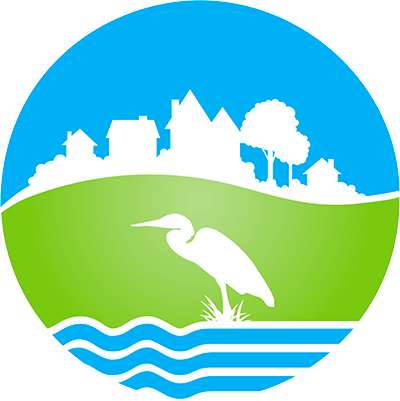Akron, Ohio, February 25, 2019– Today, at an event at the Water Reclamation Facility (WRF), Mayor Dan Horrigan and City officials announced the early completion and subsequent cost savings and additional environmental benefits of the Step Feed Phase 2 project. This project is one of the 29 projects in the City’s consent decree under the Akron Waterways Renewed! (AWR!) program.
The Step Feed Phase 2 project reached substantial completion officially on February 21, 2019 and has been providing a higher level of biological treatment since late 2018, ahead of the mandated April 30, 2019, deadline. As of today, approximately 335 million gallons of wastewater have been provided a higher level of treatment due to the WRF Step Feed Phase 2 project. In total, completion of both phases of the project have resulted in a higher level of treatment of more than 727 million gallons of wastewater.
In addition to the treatment benefits, the project contractor, Great Lakes Construction, completed the project at a construction cost of $37 million, which was $11 million under the engineer’s estimate of $48 million. The project also exceeded the diversity goal of 18% with 19.32% of the construction contract being performed by minority-owned, women-owned, Encouraging Diversity, Growth and Equity (EDGE) or disadvantaged subcontractors.
“I’m incredibly pleased that we were able to complete this project under budget, in advance of mandated deadlines, and that we were able to exceed our diversity goals in the process,” Mayor Daniel Horrigan said.
Step Feed Phase 2 approval was the result of an earlier pilot project, WRF Step Feed Phase 1. The project was to show that the Step Feed process would work and if it proved successful, to provide the design and operational parameters for Phase 2. The overwhelming success of this pilot project not only demonstrated that it would work, it also provided a higher level of biological treatment to 392 million gallons of wastewater.
As part of the Phase 1 pilot project, four new High Speed Turbo Blowers were installed. These blowers use a magnetic bearing technology that are 25% more efficient than conventional blowers, resulting in a projected savings of $21,000 per month in utility costs and a $108,000 energy efficiency rebate.
“The Step Feed pilot program demonstrated a culture of sustainability by using an existing facility to its maximum capacity and reduce energy and maintenance costs,” Mayor Horrigan continued. “Between the pilot program and Phase 2, we have exceeded our environmental obligations and greatly increased treatment capacity at the Water Reclamation Facility during large rainwater events.”
